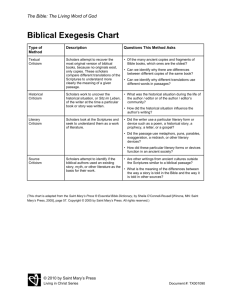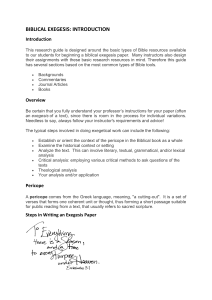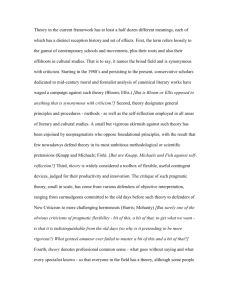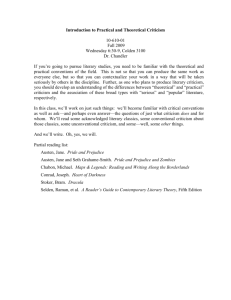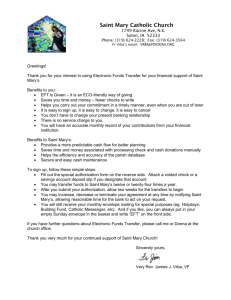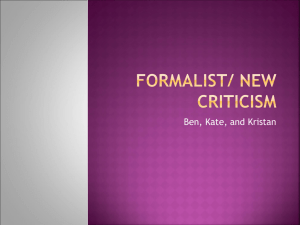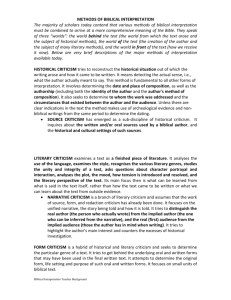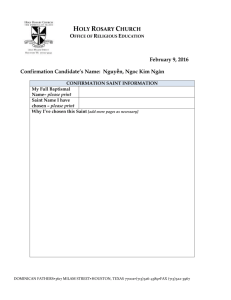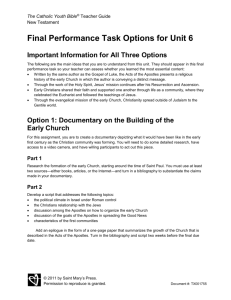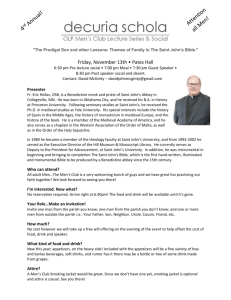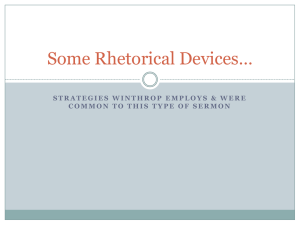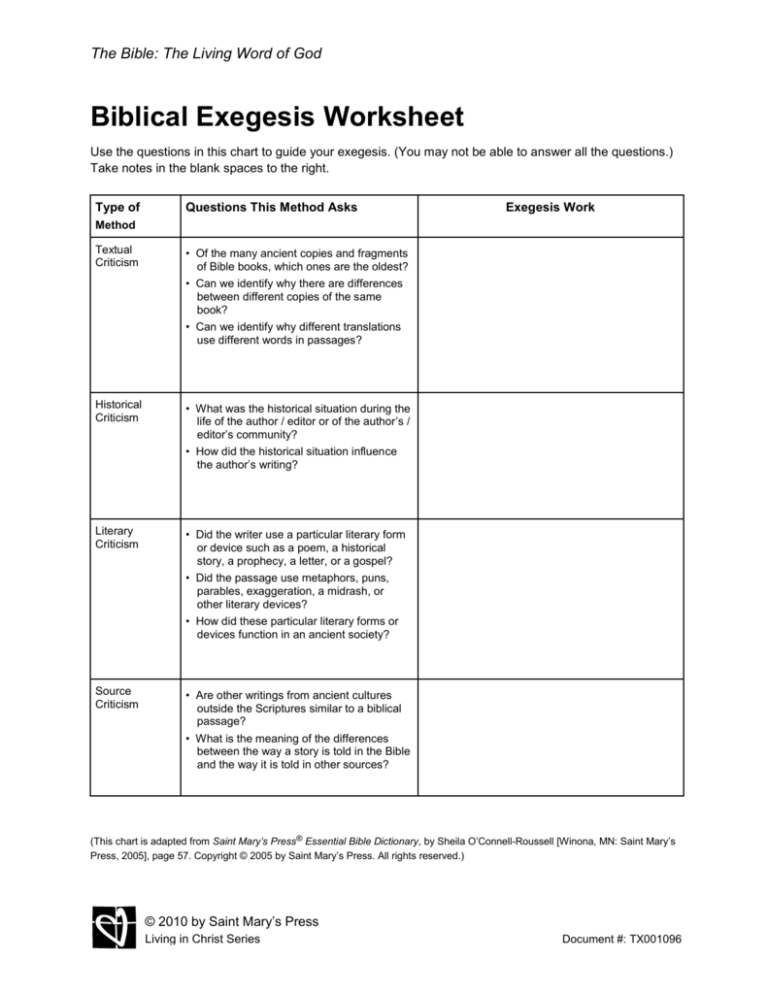
The Bible: The Living Word of God
Biblical Exegesis Worksheet
Use the questions in this chart to guide your exegesis. (You may not be able to answer all the questions.)
Take notes in the blank spaces to the right.
Type of
Questions This Method Asks
Exegesis Work
Method
Textual
Criticism
• Of the many ancient copies and fragments
of Bible books, which ones are the oldest?
• Can we identify why there are differences
between different copies of the same
book?
• Can we identify why different translations
use different words in passages?
Historical
Criticism
• What was the historical situation during the
life of the author / editor or of the author’s /
editor’s community?
• How did the historical situation influence
the author’s writing?
Literary
Criticism
• Did the writer use a particular literary form
or device such as a poem, a historical
story, a prophecy, a letter, or a gospel?
• Did the passage use metaphors, puns,
parables, exaggeration, a midrash, or
other literary devices?
• How did these particular literary forms or
devices function in an ancient society?
Source
Criticism
• Are other writings from ancient cultures
outside the Scriptures similar to a biblical
passage?
• What is the meaning of the differences
between the way a story is told in the Bible
and the way it is told in other sources?
(This chart is adapted from Saint Mary’s Press® Essential Bible Dictionary, by Sheila O’Connell-Roussell [Winona, MN: Saint Mary’s
Press, 2005], page 57. Copyright © 2005 by Saint Mary’s Press. All rights reserved.)
© 2010 by Saint Mary’s Press
Living in Christ Series
Document #: TX001096

